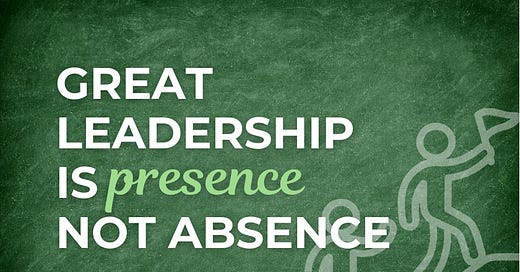There’s a reason Brian Chesky won Reid Hoffman’s annual leadership award at the annual Masters of Scale conference held just last week.
Here’s Brian being interviewed by Keith Rabois the next day with a focus on “The Art of Hiring.” He also touches on the key aspects of the now infamous Founders Mode attributed to him and thus this week’s follow up to my prior posts on this subject.
Before we get to Brian’s “Best Of” for hiring, he took time to again define his beliefs of being a great CEO (founders mode or not). As you listen to this or read below, you don’t have to be a CEO to incorporate these lessons. You simply have to be a leader.
“Review All The Work”
Brian makes it a point to do a deep dive into every function in the company every 2 years. He wants his leaders to “show me all the good and all the bad.” He makes it a point he’s not judging and “nobody is going to get fired.” He wants people to feel safe and not cover their ass. He clearly believes in continuous improvement and structures his core belief with internal audits he personally leads every few years with nearly every function inside of AirBnB today.
This “Show and Tell” as well as “Auditing” were also core principles of my Decision Making Series from a few months back. The bottom line: it’s very healthy to do a complete audit/gap assessment and then create a corrective action plan for any area you are leading. In Brian’s case, he views himself as the co-leader in all areas. So take a lesson from Brian here and experiment with designing your own capability assessments and gap analysis for every function you lead.
Brian uses the technique of “Walk Me Through the Details of the Problem” and considers every problem as having a journey (beginning - middle - solution). Brian wants to understand that journey so he can contribute to the solution.
“Be The Final Decision Maker For Your Area of Expertise”
Brian’s expertise is Product and he believes every founding CEO should be the Chief Product Officer. Anything customer facing has a final review by Brian before being published. For the most important functions for your leadership area, think about being the final decision maker, especially in your particular area of expertise.
As the leader for any area you lead, be the final decision maker for your own area of expertise. Do not delegate this decision to others.
Brian then moved on to the main focus of the talk of “The Art of Hiring.”
“Executive Hiring”
The #1 reason executive hires fail is they are hired at the wrong stage or have the “wrong stage instinct.” Brian is 100% right that “stage fit” is more important than expertise. To de-risk this, Brian asks a variety of detailed questions such as “What Did You Specifically Do?” and “How Did You Do It?” He continues to ask follow up questions during the executive interview to ensure the person provides the proper leadership at the proper stage.
Brian also strongly emphasizes significant reference checking from multiple sources. He asks each reference “Who is the best person you know?” for this function. He then asks those people the same questions in hopes he hears his candidate is one of “those people.”
Another favorite reference check question from Brian is, “What’s the one area of development this person needs?” Brian believes the reference has to answer something and this answer is great data especially if it’s pattern matched from other references.
Co-Hiring Manager
Brian has a rather unique concept that he considers himself a co-hiring manager for all of his direct reports who are hiring. When one of Brian’s direct reports is hiring their own direct report, Brian considers himself the co-hiring manager and he also considers all these “Directs of My Directs” as also having a dotted line to Brian.
Brian believes that eventually he wants these directs of directs to eventually report to Brian so he wants to make sure his directs are over hiring and are hiring potential successors to their function and therefore considers himself the eventual “co-hiring manager.”
A Pitcher Never Takes Themselves Off The Mound
When people stop scaling they never come to you and tell you they want out of the game. Don’t be conflict-averse as a leader. Don’t wait to give feedback.
Ask, “How are you scaling today?”
Ask, “Are you 12 months ahead of today?”
Assess, “How good is the leader’s team?” - Great leaders hire great teams.
The bottom line is not every leader can scale from Series A all the way through IPO. The best scaling leaders are constantly scaling 12 months ahead and hiring great people to fill the gaps 12 months from today.
Leaders that need to be replaced are those that are great or passionate at one stage but haven’t experienced or are capable of the next stage of company growth. There are many people great at the “build stage” but not great at the “leadership stage” and vice versa. Very few leaders can operate at both the detailed build stage and also at the strategic leadership stage.
In nearly every case, by making the hard leadership replacement “call,” you are doing both the person and your company a huge benefit by forcing them back to the stage where they excel.
Happy Election Day! Here’s hoping the leaders we elect can operate under some of the same leadership principles we’ve been discussing here over the last several weeks and months - they remain “Present” and “Not Absent,” and “Review All The Work.”





